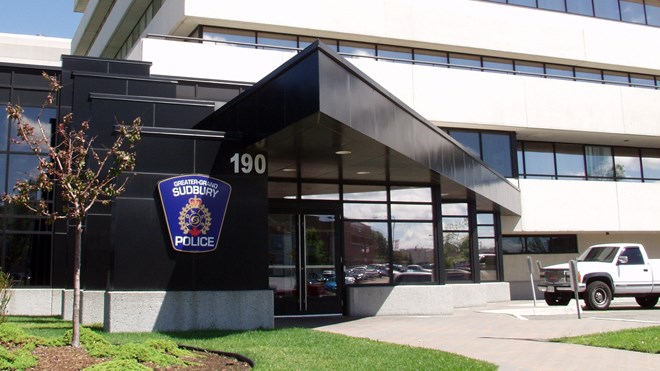Greater Sudbury Police are seeking a 3.9-per-cent increase in their budget for 2018, on a budget that totals $57,763,721, or roughly $2 million more than in 2017.
While outside boards like police have been asked by city council to keep their increases to three per cent, the 0.9 per cent in the increase – or $597,348 — is to help fund a new or renovated police headquarters.
The current headquarters on Brady Street was converted from office space in the 1990s. Since then, a number of long-term issues and conflicts have emerged. For example, suspects, victims and even the media all use the same elevator. The only public meeting space is on the fifth floor, meaning anyone who attends has to be escorted from the main lobby and back again.
Mould is a growing issue, forcing staff to relocate while the problems are addressed, then move back again when it's cleaned up, until another problem is found. There's also a lack of proper training and other facilities.
In October 2016, the board approved a plan to renovate the existing building at a cost of $18.4 million, which would extend the life of the current headquarters for another 20 years. The work would have been completed in three years, and the annual debt repayment over the next 25 years would be $900,000.
However, city council asked police last year to delay a decision to allow them to look at other options. Last month, the police board voted to hire another consultant to prepare a detailed report on what police will need in a new or renovated headquarters.
Other factors affecting the police budget include a 15.2-per-cent increase in extended health premiums, and the fact WSIB contributions have also had a significant spike again this year of 28 per cent.
“This again stems from the change in legislation around PTSD presumptive claims,” says a report on the police budget. “This jump will in part be offset by reimbursements from the WSIB Reserve when members are off and from the Sick Leave Reserve. The Professional Assistance account has also increased by $10,000 to offset costs associated with member support.”
Police are also concerned that the legalization of cannabis planned for this summer could bring with it new costs for officers and are hoping to receive funding to offset whatever new expense the change brings.
“The Ontario Association of Chiefs of Police resolution called for funding for the enforcement of the Cannabis Act and for the required staff development to become proficient in detecting marijuana use in certain situations,” the report says. “There are many unknowns as the effective date draws near, however, it is known that there will be requirements for training of drug recognition experts.
“This is highly specialized training and its availability at this time is limited. The impact on the budget from lost productivity to training will be significant as sessions become available and members are assigned. There will also be requirements for purchase and maintenance of testing devices which again at this time have not been specified.”
The report also had some good: 2016 saw a decrease in impaired driving of eight per cent, which the force attributes to “education and enforcement activities.”
And the decision to hire community safety personnel to handle non-core policing duties instead of giving them to police officers has also paid off, saving the force almost $330,000 a year.
The police services board will review the budget at its meeting Monday, before it goes to the city's finance committee Tuesday.



